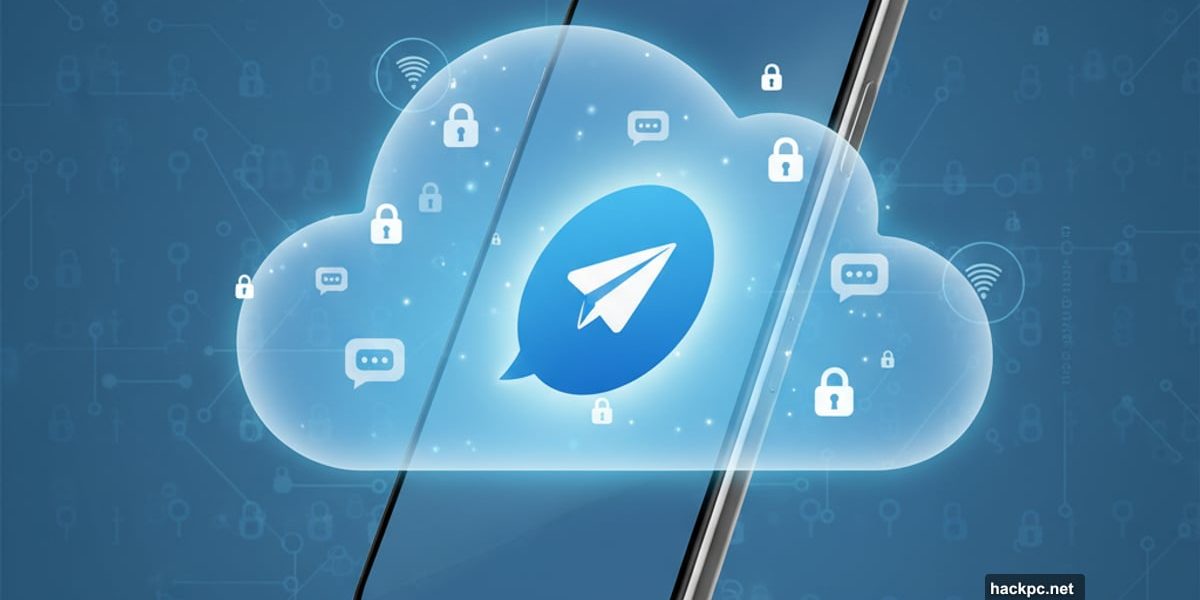
Signal just solved one of its biggest problems. iPhone users can now back up their encrypted messages to the cloud.
This matters because losing your phone meant losing everything. No chat history. No photos. Nothing. Now that changes.
But there’s a twist. Signal’s charging for the first time ever.
Backups Work Like You’d Expect
Signal encrypts your messages end-to-end. Always has. But until now, those messages lived only on your device.
Drop your phone in a lake? All your conversations vanished. Switch to a new iPhone? Start fresh with zero history.
The new backup feature changes that math. Your texts get backed up automatically each day. Plus, you get 45 days of media storage included. Photos, videos, voice messages – all saved securely in the cloud.
Here’s what makes it different from iCloud backup. Signal can’t read your messages. Even in backup form. They stay encrypted with a 64-character key that lives only on your device.
Lose that key and Signal can’t help you. They literally can’t access your backup. That’s the security tradeoff.
The First Paid Feature Arrives
Signal needs money to store your stuff. Makes sense when you think about it.
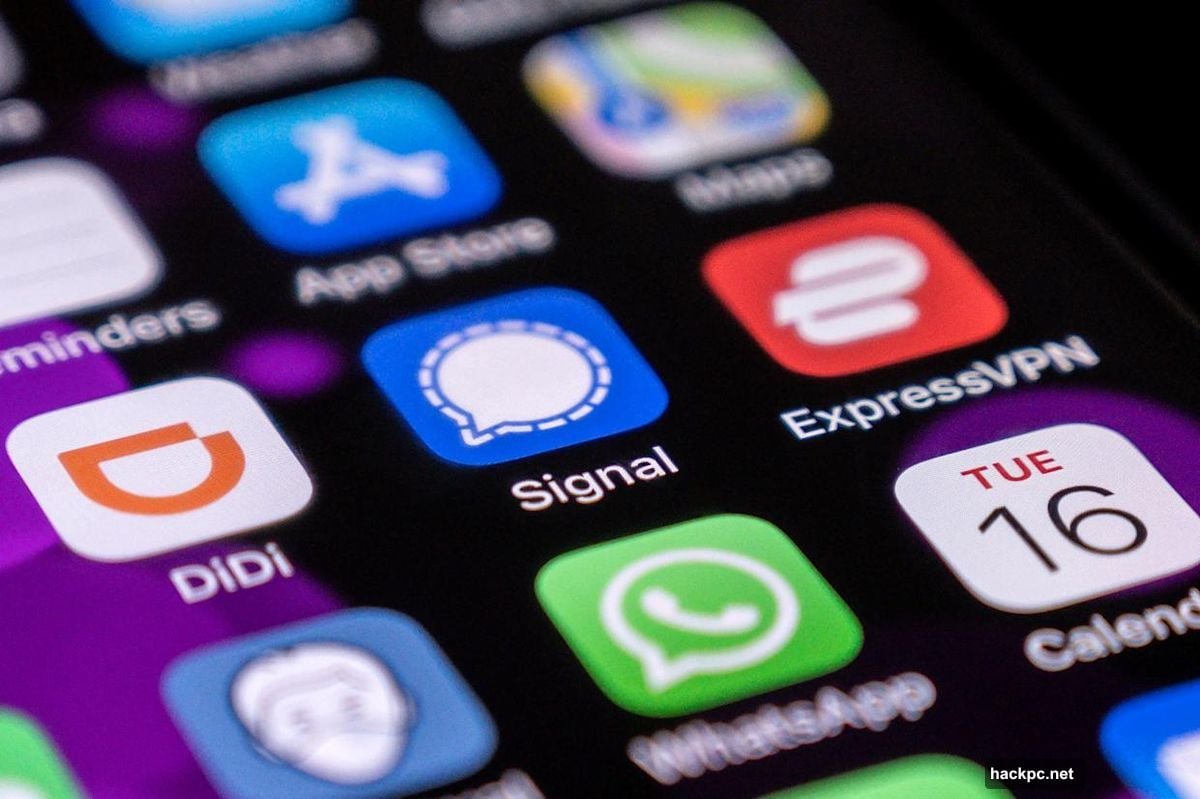
Other messaging apps sell your data to advertisers. Signal refuses. So they’re trying something new – charging for extended media storage.
The basic backup costs nothing. But keeping photos and videos older than 45 days runs $2 monthly. That’s Signal’s first-ever paid offering.
Why the charge? Media files eat storage fast. Storing and transferring that data costs real money. Signal’s a nonprofit that won’t monetize your conversations. So they need another way to cover infrastructure costs.
Frankly, $2 feels reasonable. You’re paying for privacy that actually means something. No ads. No data collection. Just secure storage.
Android Users Got It First
iPhone users aren’t the pioneers here. Signal tested backups on Android starting in September.
Smart move. Rolling out to a smaller user base first lets you catch problems before they affect millions. Android users served as the beta testers whether they knew it or not.
Now the feature hits iOS because apparently nothing broke. That’s good news for everyone.
The company announced the iOS launch on X with minimal fanfare. Just a simple post linking back to the original Android announcement. No press release. No big marketing push. Very on-brand for Signal.
Opt-In Means You Choose
Backups don’t turn on automatically. You have to enable them yourself in settings.
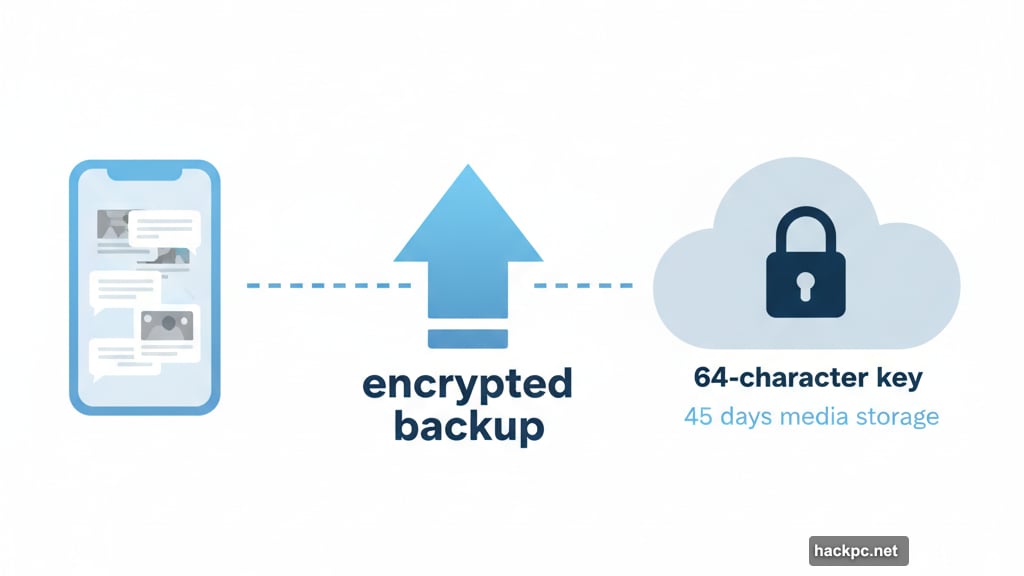
This matters for privacy-conscious users. Some people specifically want their messages to disappear when their device does. Signal respects that choice.
For everyone else, turning on backups takes seconds. Open Signal settings. Find the backup option. Enable it. Done.
Your first backup happens right away. Then Signal backs up your messages once per day automatically. You don’t need to think about it again unless you want to restore from backup.
Remember that recovery key though. Write it down. Store it somewhere safe. You’ll need it if you ever restore your backup to a new device.
The Recovery Key Changes Everything
That 64-character recovery key is both the best and worst part of this system.
Best because it means perfect security. Signal genuinely cannot access your backed-up messages. Not because they promise not to. Because they mathematically can’t.
Worst because losing that key means losing your backup. Forever. Signal can’t reset it. Customer support can’t recover it. It’s just gone.
So treat that key like your house keys. Better yet, treat it like the only copy of your house keys. Store it carefully. Maybe in a password manager. Maybe written down in a safe place.
Don’t store it in the cloud where someone might steal it. That defeats the purpose of Signal’s security model.
Media Storage Economics Are Brutal
Storing everyone’s photos and videos costs serious money. Signal’s being transparent about that.
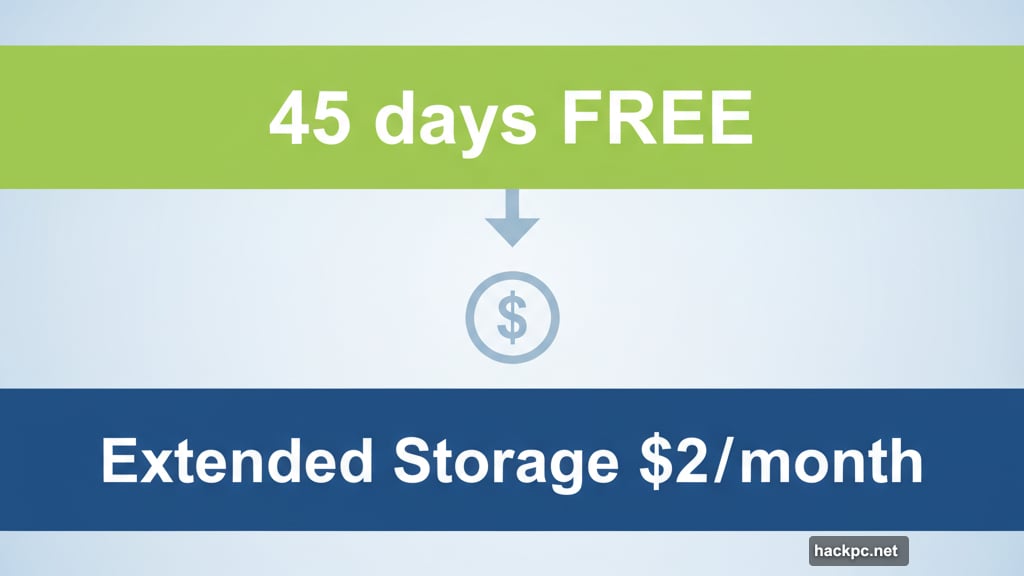
Most messaging apps hide these costs. They make money elsewhere – usually by selling your data or showing ads. Signal refuses both options.
So they’re trying direct payment instead. Users who want unlimited media storage pay $2 monthly. Everyone else gets 45 days included free.
Honestly, that’s a fair deal. Think about how much media you send in Signal conversations. Photos of your kids. Videos from trips. Memes you can’t live without.
Keeping all that safe and encrypted costs real money. Signal’s just asking users to chip in rather than compromising on privacy.
What This Means for Privacy
Signal’s backup approach shows you can have security without sacrifice.
Other encrypted messengers struggled with backups. Some stored them unencrypted. Others made them so complicated nobody used them. Signal found middle ground.
Your messages stay encrypted even in backup form. The backup happens automatically so you don’t forget. And the recovery key system means Signal stays true to its privacy mission.
This matters as more people care about message security. Signal’s proving you don’t need to choose between convenience and privacy anymore.
Plus, the paid storage model might work better than everyone expected. Users who value privacy often understand why services cost money. They might actually prefer paying cash over paying with their data.
Choose carefully with that recovery key though. Signal’s backup is only as secure as you make it.

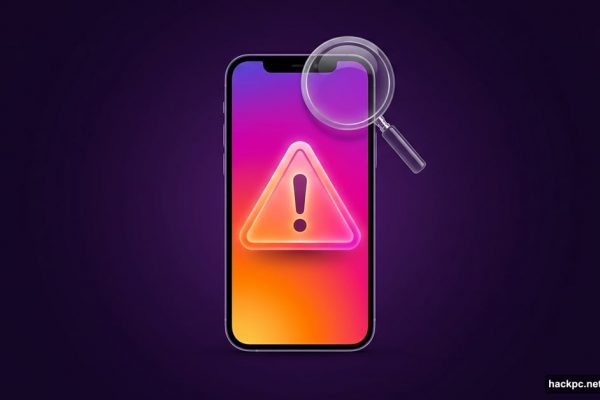
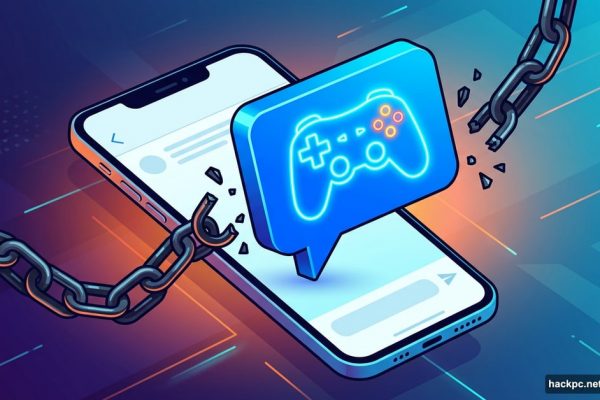
Comments (0)